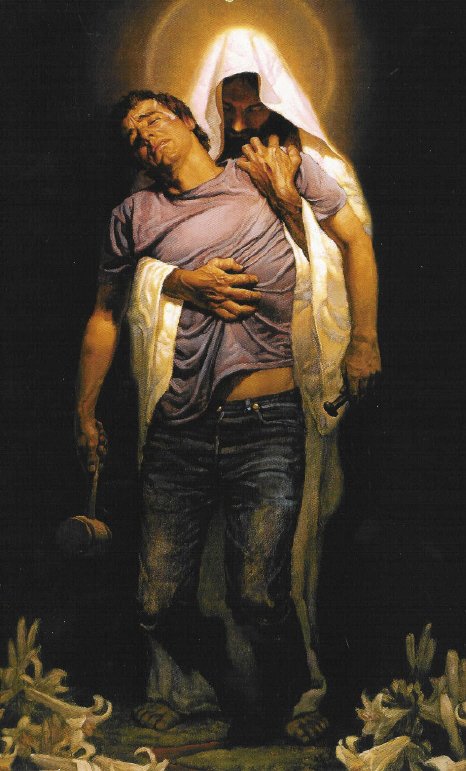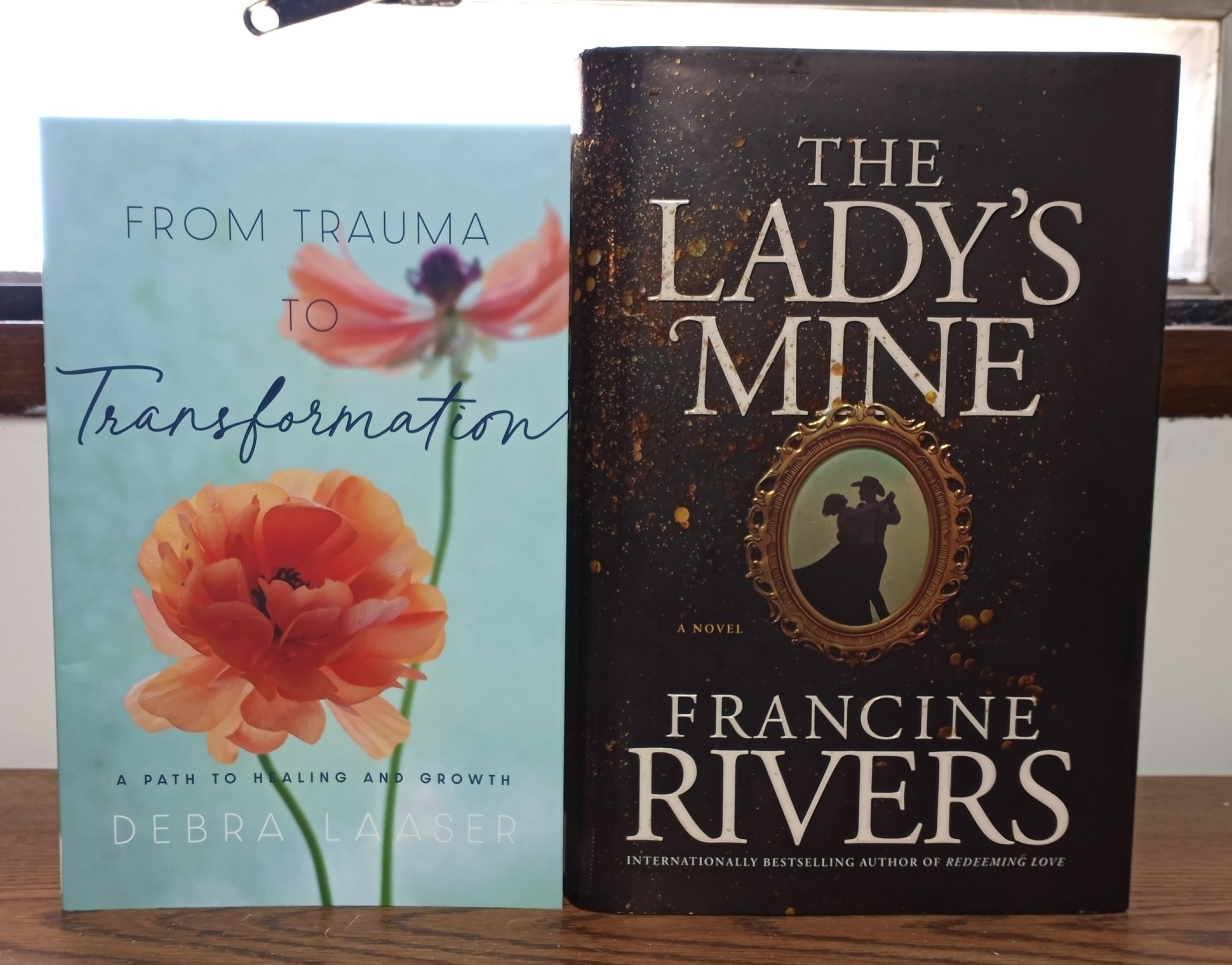You can listen to Ask The Pastor every weekday at 9:00am MST on 97.1FM Hope Radio KCMI! You can also listen and subscribe to Ask The Pastor in your favorite podcast feed. Listen on Apple Podcasts, Spotify, Google Podcasts, Stitcher, Amazon Music and most other podcast services.
This edition of Ask the Pastor features Pastors Ben Cline, Gary Schick and Johnathan Hernandez.
Gary Schick
You know what I kind of appreciate about these questions? One, every week they're honest. And two, it not only allows us to look at the scripture, but also there's things, and today's gonna be one of them, where we've kind of heard this, but is that exactly how it was? You know what I mean? So I know for my part, I'm gonna dig into that a little bit too. But anyway, it's just kind of good to be able to look into scripture and history and then back to scripture again, and where it all kind of comes together. So here is today's question that kind of deals with a little of both. "How do we reconcile the seemingly different scriptures in Romans and James, as it relates to faith and works? Martin Luther could not reconcile them." So, Jonathan, what have you got on this?
Jonathan Hernandez
Yeah, so I have quite a few scriptures, so we'll try to see what we can get through. So I started with James 2:24, and it says, "you see then that a man is justified by works and not by faith alone." But then when we jump to Romans or jump backwards, I guess to Romans, we have Romans 3:28. It says, "therefore, we conclude that a man is justified by faith apart from deeds of the law." And so when we look at those two scriptures, we'd say, "Whoa, those kind of contradict each other, right? And we know that scripture doesn't contradict itself, and so when I looked at this, I looked at the word justified out of here. And my Greek's not very good so, so sorry, but it's δικαίωσις(dik-ah'-yo-sis). And so to define that, it would say, "to show to be righteous or declared righteous," are the two meanings for this word. And so we look in Romans and in Romans, it's more of like a legal meaning and so it's 'one who's declared righteous or acquitted.' And so we'd say that's the process of justification. You know, there's a process where we become right with God, we're sinners and we repented and then we believe in Christ. And so therefore, Christ declares us righteous. And so that's the way we would look at those things, and then we would see this throughout the whole book of Romans. And then also in Galatians and Titus, they kind of follow the same declared righteous process. And to kind of give you scriptures within that, we'd have like Romans 3:24, "Being justified freely by his grace, through the redemption that is in Christ Jesus." Then we'd have Romans 4:2-5, Galatians 2:16, Galatians 3:24, and then Titus 3:7. And with these each, they would be walking that line of being declared righteous and instead of being shown to be righteous. And then the second meaning, like I said, "is to be shown to be righteous," and we'd see that here in the book of James. And James says, "we see Abraham's work show He was righteous," and this is out of James 2:21-23. "Don't you remember that our ancestor Abraham was shown to be righteous because of what he did when he offered his son Isaac on the altar?" And so we're seeing this same word, "justified," but in a different light. With Romans it's, "to be declared righteous," and here it's that we're being "shown to be righteous." James 2:25, where it talks about Rahab, is another example, she was shown to be righteous with God by her actions. And so they just can continue to walk down this line of showing to be righteous. And so I think a lot of times when we look at this word, and even any words, we look at them and we think of our meanings for everything. And so we're using that through the scriptures instead of looking "Okay, what does the intended word here mean when we look at these things?" So, we would say, "okay. James, isn't disagreeing with Paul by saying that we are declared righteous by faith and works." And, you know, even though they look like it's two totally different things, they're still walking the same line. And so that's kind of how I would put this, you know? The main goal of Paul is to teach the true meaning of justification by faith alone and how a person is saved. And then in James, they're teaching how to declare the genuineness of someone's faith. And so we're seeing that's where---I guess that's what I wrote down---how I looked at it and how I would justify how these all come together. Or reconcile it.
Gary Schick
And it's not an easy question. I mean, Luther did struggle with it as we'll see. But excellent, thank you. Ben?
Ben Cline
Yeah. Thank you, Jonathan. You know, I was looking through this last night and this really is one of those questions that I really appreciate, because it's one that really makes us delve in scripture. And so, you know, just looking into the passages that are in Romans and the passage that is in James, you know? One of the things that I was thinking about is that God has certain desires for us as Christians, as followers of Him. And, you know, one desire is that we have faith in the finished work, the finished work of Christ on the cross. And that's a desire that He has for us. And that is something that He says, "Believe in this, and you will be saved," but He also has the desire for us to walk in righteousness. You know, holiness is a big, big topic in scripture. And, you know, in Romans, Paul makes the argument that we are justified by faith apart from the law. And it's really interesting, I came across Romans 6:1-2, and he says, "What shall we say then? Are we to continue in sin so that grace may increase?" And he says, "may it never be. How shall we, who died to sin still live in it?" And then I think that James is actually kind of answering that question, and he says, "We don't continue to live in sin. We live in holiness." You know, I came across an article last night, too, you know, as I was looking through different things. And the person who wrote this article, they said, "James doesn't teach a different gospel than Paul. He simply emphasizes that faith and works are inseparable. James warns about hiding in a merely theoretical faith that has no practical relevance." And I just thought that was such a great way to put that. That our faith is, you know, practically what saves us and what declares us as righteous before God. But there is a result, right? There's a result from that. And that is that God wants us to live a holy life before Him. And, you know, there's passages in Titus 2, just a couple of passages I wanted to read real quick. And these are two passages that I think tie these two ideas together very, very, succinctly. And this is Titus 2 starting in verse 11, it says, "For the grace of God has appeared bringing salvation to all men." And then it says, "Instructing us to deny ungodliness and worldly desires. And to live sensibly, righteously, and godly in the present age; looking for the blessed hope in the appearing of the glory of our great God and savior Jesus Christ. Who gave Himself for us to redeem us from every lawless deed. And to purify for Himself, a people for His own possession, zealous for good deeds."
Gary Schick
"Zealous for good deeds." Saved by faith, but the good deeds should follow.
Ben Cline
Yeah, exactly. And then he ends that by saying, "These things speak and exhort and reprove with all authority and let no one disregard you." And that's the approach that I think both Paul and James are taking. They're speaking it with authority and they're not allowing anyone to disregard those words. The other passage, you know, you guys know Ephesians 2:8-10. You know, that we're saved by grace through faith, and it's not by works so that none of us can boast. But then it talks about, in verse 10, that we were created by Christ Jesus for the works that He laid out before us. And so those things are tied together in scripture, they're inseparable.
Gary Schick
Well, and as I looked into this, you know, I kind of thought about that little piece there too, about Luther and his struggle. With what he saw as a contradiction between Paul and Romans and James. And, you know, he did not seem to like the book of James. He appears to have taken an issue with it. He didn't think it expressed the nature of the gospel, because it appeared in his mind to contradict Paul's statement about justification, by being justified by faith. And because it didn't seem to directly mention Christ after the opening verse. And so here's what Luther actually said, he said, "Therefore, St. James epistle is really an epistle of straw compared to these others, for it has nothing of the nature of the gospel about it." So that, there's a slam; but it gets worse. So he was openly critical of James. He wondered if it belonged in the Bible. He never though, and this is important, he never formally proposed that it should be removed from the scriptures though. Even though he didn't like it, he didn't say we should take it out. And he did, however, interestingly suggested it be taken out of the schools. So here's the first guy saying, "Let's pull it out of the school." And here's what he said about that, he said, "We should throw the epistle of James out of this school, for it doesn't amount to much. It contains not a syllable about Christ, not once. Does it mention Christ except at the beginning? I maintain that some Jew wrote it, probably, who wrote it and probably heard about Christian people, but never encountered any. Since he heard that Christians place great weight on faith in Christ, he thought, 'Wait a moment. I'll oppose them and urge works alone. And this, he did." Well, those are really strong words. But here's something really interesting about Luther. So outwardly he's, "I don't want James," but when I was in seminary, somebody did a statistical analysis of all of Luther's quotes of scripture. And here's, what's really cool. Luther quoted James as often, and with the same authority to which he gave any other scripture. Anything that Paul wrote or anywhere else. So he didn't like it, because in his mind it contradicted. But at the same time, he quoted it as frequently as any other scripture. And I think what we have to keep in mind friends, is historically where Luther was coming from. You know, today James is like the favorite book of most Christians I know, because it is so practical in how we live out our faith. What does living faith look like? But in Luther's day, that wasn't exactly the question. In Luther's day, the church of Rome had so befuddled the gospel by saying, "You know, faith is good, but you can't be saved without faith plus doing these works." And then even defining what these specific works of righteousness were, that had to be added to your faith. And this was a struggle for Luther. If you know his story, he wanted to earn his salvation. I mean, he was going to his confessor every day saying, "And I had this thought and I had that thought." To the point where his confessors said, "Luther, come to me when you got something worth confessing," you know? But he was right in the sense that, "I can't be pure enough for a holy God." Until he came to Paul's words (Romans 1:17), where Paul is actually quoting Habakkuk 2:4. "The just shall live by faith." This is Luther's salvation verse. This is where he is set free from trying to earn his salvation. The just will live by faith, will be justified by faith; as you pointed out in the scriptures you guys each read. And that's a quote that he pulls up again in Galatians 3:11. And by the way, it's also quoted by the author of Hebrews in Hebrews 10:38. Which, some believe Paul could have been the author of Hebrews, we don't entirely know. I think where it all comes together for me is, Ephesians 2:8-9. Paul says it so beautifully, "For it is by grace that you have been saved, through faith---this not from yourselves, it is the gift of God---not by works, so that no one can boast." So Paul, for the people in the time of the reformation, and for us as well makes it crystal clear: you are saved by faith, not by works. However, and this is where we sometimes forget. We also gotta look to verse 10 for Paul writes, "We are God's handiwork, created in Christ Jesus to do good works, which God prepared in advance for us to do." So Paul is saying, "look, you're saved by faith, not because of anything you do." And yet he continues, "and saving faith then has this fruit of good works." Yeah, it's not getting the cart before the horse. We're saved by faith and saving faith does good works. And this is where he and James actually come together, because they're answering different questions. Paul is saying to brand new believers who are trying to work their own way into heaven, "Cut it out. You can't do that. You can't work your way in, this is a gift you receive." James is saying to those new believers, "And now having received this faith, this is how you live it out." And curiously, while, you know, mentioning the fact of James, he really does only name Jesus right there at the beginning. But he refers to Jesus over and over again in the sense that he is quoting Jesus' teaching. Particularly, from the Sermon on the Mount, which is all about how we live out our faith. All through his beautiful, practical letter. So on the surface, do they seem to contradict? Sure. But when you dig in, James and Paul, as you guys pointed out, walk hand in hand. And Luther, on the surface, can't stand the book of James, but underneath, when it gets practical, when in terms of living out our faith, he's quoting James just as much as anybody else, because it's God's word. And, you know, we make a lot of a guy like Martin Luther, because he was the springboard to the reformation. But his words, thankfully are not divine scripture, are they? You know, they were a guide to the people of his time, as they were really shaking free from something heavy. A heavy chain that we are not walking in today. So we gotta give Luther a little bit of a break for his strong words, which are overboard, because he was facing something that was overboard. And that was the idea that somehow, it's Christ plus all the merits of the saints, plus what you and I can do plus...and you just can never do enough if you're trying to earn your way in. So, is there any more that you guys have on that?
Ben Cline
No, this is great!
Gary Schick
Yeah. Kind of fun to dig into the history too, isn't it? We're living in hard times. He did too.






























